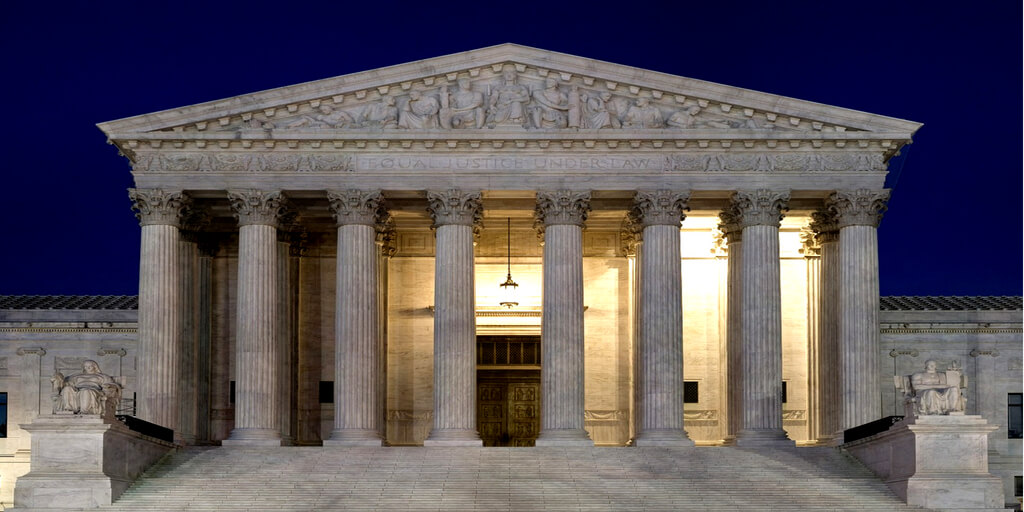On June 27, 2018, the U.S. Supreme Court issued a long-awaited decision affecting public sector unions. In Janus v. American Federation of State, County and Municipal Employees (AFSCME) Council 31, the Court ruled that government employees cannot be required to support financially unions that represent them. This decision reverses precedent from a case the Supreme Court decided 41 years ago. Public unions will now face new challenges.
Public Unions as Exclusive Bargaining Representatives
Unionizing usually means employees select by majority support a single union to represent them in dealings with their employer regarding terms and conditions of employment. The union must represent every employee fairly. Even employees who do not support the union are subject to what the union negotiates on their behalf. Employees in represented units typically cannot deal directly with their employer on topics like wages and benefits.
Agency Fees
Not all states permit unions to represent government employees in negotiations and other dealings with their public employers. But those that do often allow unions and governmental employers to agree to deduct money from represented employees’ pay to fund the union.
In a 1977 case (Abood v. Detroit Board of Education), the Supreme Court addressed Constitutional challenges to such requirements. The Court acknowledged that forcing public employees to fund every nature of union activity would violate employees’ First Amendment rights. Specifically, public employers could not compel their employees, even through collective bargaining, to contribute to unions’ political activities and lobbying efforts. However, the Court allowed at that time that public unions and employers could agree to require all employees within a bargaining unit to contribute toward the costs of collective bargaining and grievance administration. Consequently, a public employee could refrain from joining the union and paying full union dues, but would still have to pay a portion of the dues known as an agency fee.
Twenty-eight states have “right-to-work” laws that give employees the choice of whether to support a union. The Supreme Court’s ruling essentially converts all states to right-to-work states for public employees.
Janus Decision
The Supreme Court has reversed its 1977 holding on agency fees. Five Justices agreed that requiring public employees to pay anything to a union violates the employees’ First Amendment free speech rights. Four Justices joined in a vigorous dissent.
The majority justified its reversal, in part, by observing that public sector unionism was a new phenomenon in 1977: “The first State to permit collective bargaining by government employees was Wisconsin in 1959, and public-sector union membership remained relatively low until a ‘spurt’ in the late 1960’s and early 1970’s. . . .”
It also bluntly concluded that the 1977 case “was not well reasoned.”
The dissenters obviously disagreed. They contended that there are still sufficient government interests to justify this limitation on public employees’ free speech rights:
- “First, exclusive representation arrangements benefit some government entities because they can facilitate stable labor relations.”
- “Second, the government may be unable to avail itself of those benefits unless the single union has a secure source of funding.”
- “And third, agency fees are often needed to ensure such stable funding. That is because without those fees, employees have every incentive to free ride on the union dues paid by others.”
The Justices in the majority rejected those points as inconsistent with current realities of the public-sector labor market. They noted, for example, that federal government employees do not have to pay agency fees to unions representing them; nonetheless, approximately 27% of the federal workforce are voluntary union members.
Impact on Public Unions
While allowing that public unions may retain their numbers despite this decision, the Janus majority acknowledges a potential adverse impact. But this risk, they find, does not trump the First Amendment:
“We recognize that the loss of payments from nonmembers may cause unions to experience unpleasant transition costs in the short term, and may require unions to make adjustments in order to attract and retain members. But we must weigh these disadvantages against the considerable windfall that unions have received under Abood for the past 41 years. It is hard to estimate how many billions of dollars have been taken from nonmembers and transferred to public-sector unions in violation of the First Amendment. Those unconstitutional exactions cannot be allowed to continue indefinitely.”
The dissenters emphasize that 22 states have freely chosen to permit agency fees based on compelling public interests. These states, they assert, recognize stability in bargaining with a solvent employee representative. The dissenting opinion unabashedly slights the majority of states and the federal government that evidently disagree:
“Of course, not all public employers will share that view. Some would rather not bargain with an exclusive representative. Others would prefer that representative to be poorly funded—to serve more as a front than an effectual bargaining partner.”
There is no doubt that public unions have feared this day. Eliminating agency fees will not benefit them. Surely, some employees will opt not to support the unions that represent them. These employees may risk some loss of union benefits. The Supreme Court majority specifically suggests that employees who do not join the union “could be required to pay for [union representation in disciplinary matters] or could be denied union representation altogether.”
Impact on Public Employers
Most notably, public employers may no longer transfer any money from employees’ pay to a union without the employee’s authorization. Most employers will not need to change anything for union members who have signed dues authorization cards. But employers presumably must immediately stop deducting agency fees from any employees for whom they do not have such authorization.
Employees could perhaps still authorize only a portion of the full union dues consistent with the agency fee calculation, subject to union amenability. Employers faced with this situation should first review any potentially relevant collective bargaining agreement provisions. In some cases, negotiation or clarification with the union may be appropriate.
Many states that have historically permitted the mandatory agency fee deduction are considering or have passed new laws to protect public unions. Public employers should consult these and preexisting state laws to evaluate the full extent of their obligations under Janus.
Given the complexity and Constitutional complexion of this issue, government employers should strongly consider discussing their obligations with an experienced labor lawyer.
You can read review the Supreme Court’s full majority and dissenting opinions here.

